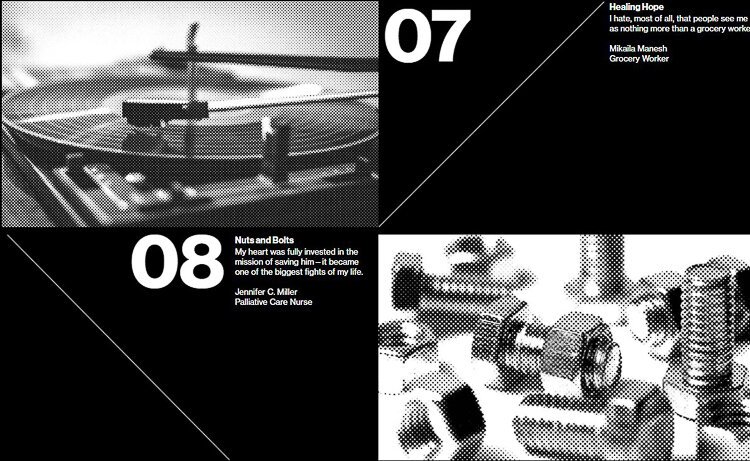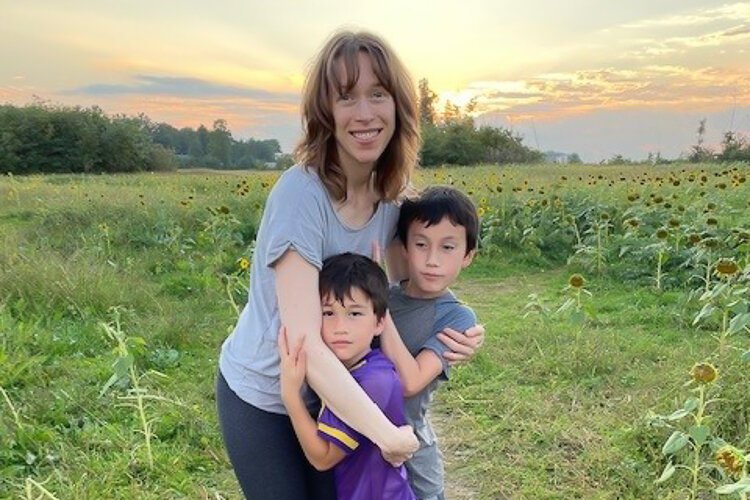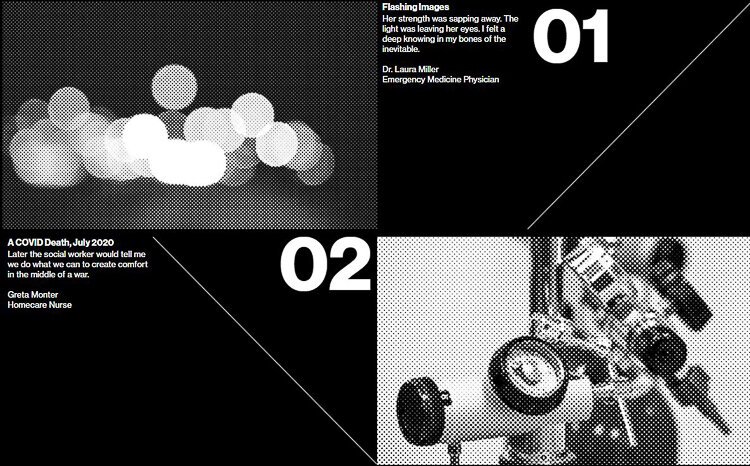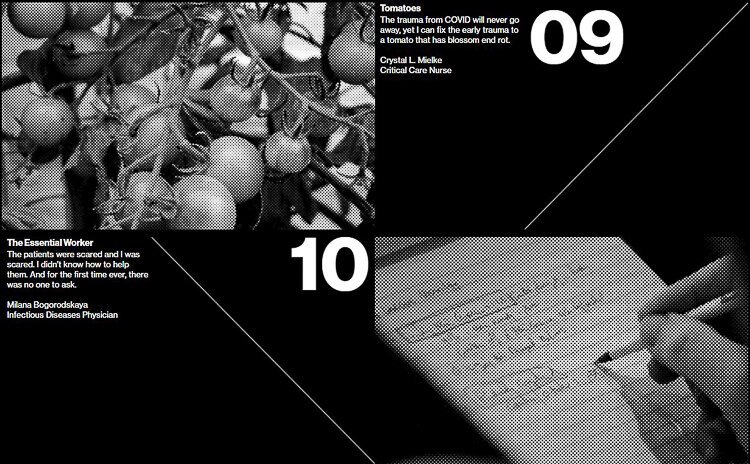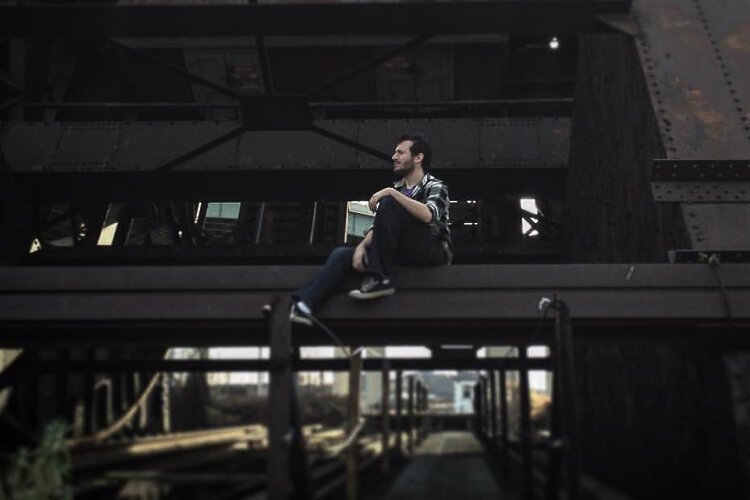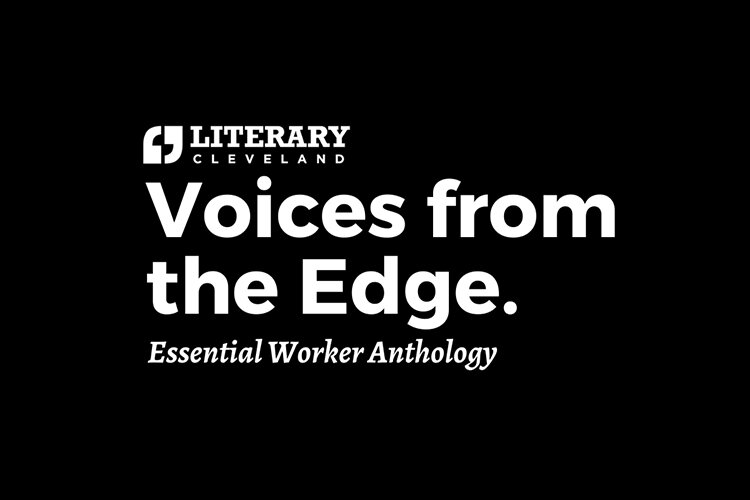Voices from the Edge: Literary Cleveland publishes writings of essential workers during pandemic
"Voices from the Edge" writings
Here are two contributions to Literary Cleveland's "Voices from the Edge" anthology.Closing Doors
It was 2020.
My fall from glory.
Oh, the irony
To see it all in hindsight.
A devoted health-care provider
Disillusioned by a pandemic.
Dispirited by the disbelievers.
The insurmountable work
Of protecting a dissenting public
Piled higher, steeper,
While my meager resources dwindled thinner, fleeting.
All the closing doors were closing in
Until there was
Nothing left but crumbling routines and habits
These kindly creature comforts.
It was 2020.
The year of breakdowns and false starts.
I poured my heart dry
Hopeful to save those not seeking salvation.
I hit empty, then started grasping frantically
Clutching disparate antidotes to despair
Anything to not collapse
Under the crushing weight of
Unrest, dead ends,
Exponential death tolls.
I am no stranger to desolation
But I am a stranger in this divisive land
Where entire worlds are funneled into collective divides.
Atomic disputes and calculated ambushes
Have escalated into the coldest war
Among one's own kind.
I feel my very cells splitting into opposing halves
Against the shearing forces of 2020.
The clinic remains open, but I close my door to call my manager. I feel tears brimming, and I’m unsure if it is guidance, support, or miracles that I seek. During my twenty years in health care, I’ve never seen anything like this. A healthy twenty-two year old struggling to breathe. “Were you both masked,” she asks. “Yes, for most of the visit.” “Were respiratory particles aerosolized during the visit?” “No, there was no coughing or sneezing while unmasked and no breathing treatments administered during the visit.” So the clinic remains open, but I’m mentally shutting down. It’s still early in the day and early in the course of things, and the future feels impossible at this moment in time. Door closed, I disinfect every visible and invisible surface, as blinding tears stream across my face. I reach for a pen and sheet of paper and begin frantically filling the white space with waves of words bottled under immense pressure.
—Christen Lee, Certified Nurse Practitioner
------------------------------------------
Pulse Check
The doors were shut
between two units
when they’ve always been ajar
two silent guardians
never meant to be closed
the ICU
it was a desert
chilly and white
with sweat and tears flung from faceshields
traveling through the air
and to the left
the first patient I see
has the automated CPR machine strapped to his chest
a device advanced enough to detect heart contractility
pulsating rhythmically for each and every beat
he was our first
and then
it hit me
it happened
it’s arrived
it’s here
the white plastic turtle shell
pushed down on his chest
forcefully rapidly
it brought him back to life
but briefly, just briefly
only when the blood
was forced out
from his heart
to his brain
before he left us
for good.
—Elisha Yin, Physician Assistant
Christen Lee, a nurse practitioner with 20 years of experience in healthcare, last year was working as a nurse at a Lakewood CVS health clinic—the region’s busiest clinic—when the coronavirus took its hold on Cleveland and the rest of the country in March 2020.
Lee, who now is with Cleveland Clinic, regularly witnessed coworkers and patients falling victim to the virus as she and her team also struggled with being unprepared for a new and lethal enemy, securing adequate supplies, and caring for patients.
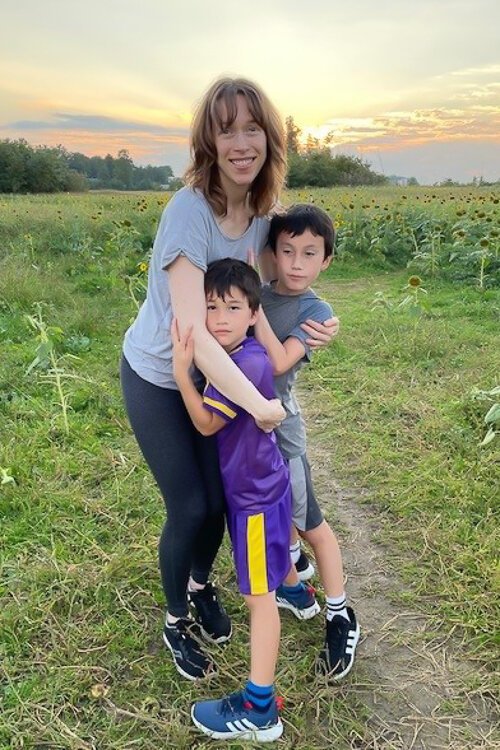 “In the beginning of the pandemic I saw more of a challenge in the lack of preparedness, the lack of resources,” Lee recalls. “There was a lot of heightened fear and really being overwhelmed by a situation none of us had been in before.”
“In the beginning of the pandemic I saw more of a challenge in the lack of preparedness, the lack of resources,” Lee recalls. “There was a lot of heightened fear and really being overwhelmed by a situation none of us had been in before.”
In that same period, Fatima Matar was working as a childcare provider for a baby and was a seasonal worker at Target—stocking shelves, working a cash register, and cleaning carts. The writer and artist with a law degree came to Northeast Ohio from Kuwait in 2019, and a year later she was working in minimum wage jobs that helped other people do their jobs.
Essential workers like Lee and Matar experienced all of the emotions so many people went trough during the height of the pandemic—from fear and frustration, to worry and anger. But many people don’t really know or understand what these people, deemed “essential,” experienced while may people locked down in their own homes.
Now, Lee and Matar are two of 60 essential workers—from grocery store workers and delivery drivers, to caregivers and physicians—who have worked with Literary Cleveland to publish Voices from the Edge an anthology of 20 original poems and essays by local essential workers. who reflect on their experiences during the pandemic. There will be a free virtual launch party and anthology reading tonight, Tuesday, Nov. 9 at 7 p.m.
Literary Cleveland executive director Matt Weinkam knows how liberating writing can be for people who have gone through traumatic or trying experiences. So, in April, May, and June this year Literary Cleveland launched an eight-week trauma-informed writing workshop for 60 essential workers.
Three in 10 Ohioans are in essential jobs and face higher risk of exposure to COVID-19 at work, yet they are paid 12.9% less than the median pay for employees in non-essential roles, according to a study by Policy Matters Ohio and Essential Ohio.
 Fatima MatarThe anthology is meant to re-engage the public with the individual stories of these essential workers and transform our understanding of the challenges they face—as well as advocate for higher pay and better protections for Ohio workers. “I don’t think may of us thought about the grocery store cashier, the bus driver, the [person] restoring power lines,” Weinkam says.
Fatima MatarThe anthology is meant to re-engage the public with the individual stories of these essential workers and transform our understanding of the challenges they face—as well as advocate for higher pay and better protections for Ohio workers. “I don’t think may of us thought about the grocery store cashier, the bus driver, the [person] restoring power lines,” Weinkam says.
Instructors Christopher Johnston, Lisa Langford, Vince Robinson, and Logan Smith led the participants to help them process their experiences, connect with fellow frontline workers, and write their stories.
Workshop sessions were offered on different days and at various times, to accommodate different schedules, and they were paid $15 an hour for their time. Weinkam calls the honorarium “hero pay” for the job essential workers have done during the pandemic.
“Part of our mission is to amplify the voices of people and groups that have gone overlooked or underappreciated,” explains Weinkam. “By providing this program we wanted to offer essential workers an opportunity to cope with their experiences and tell their stories.”
Lee, who has written poetry and journaled since she was 14, wrote a hybrid collection of poetry and essays and says the workshop helped her process her emotions. “With the start of the pandemic I felt myself really digging in more and [the workshop] was a healthy outlet to work through some of these difficult times. It was very cathartic—I felt like I processed it at a different level.”
Weinkam says the workshop was also a way for others to take a look inside the lives of the workers who kept things going during the shutdown.
 “It was just as important to share their stories with the public so we could walk in their shoes, understand their lived experiences of the pandemic and the sacrifices they made on a more personal level,” he explains. “Our hope is that this inspires all of us to support essential workers in the same way they supported us.”
“It was just as important to share their stories with the public so we could walk in their shoes, understand their lived experiences of the pandemic and the sacrifices they made on a more personal level,” he explains. “Our hope is that this inspires all of us to support essential workers in the same way they supported us.”
Matar says she is frustrated by the lack of appreciation workers in the service industry have experienced in the past 20 months. “All of these jobs are necessary for other people to do their jobs. We’re being called essential, but at the same time we’re underpaid,” she says. “In the end, proper compensation and a livable wage is what these people need.”
When Matar was taking care of the child, she says there were days when her boss would tell her not to come in so she would have to go without pay. Another time, when her boss forgot to pay Matar, the boss snapped at her when she texted a reminder. “She said, ‘You only work for the money,’” Matar recalls. “There’s this act of shaming minimum wagers—I can’t believe I was being shamed when they know they rely on caregivers.”
Matar said the woman did apologize for the comment later. “These are micro-aggressions that these workers face on a daily basis,” she says. Matar shared her experience in her essay “Baby.”
Weinkam says the workshops, and now the published anthology, have been great ways for these workers to share their feelings with each other and the world. “There has not been a forum in a social situation where we can unburden ourselves of what happened in the last year and a half,” he says. “They’ve been hard at work for 18 months—they’ve been keeping businesses going, keeping the lights on. We can play a small role in supporting them the way they’ve supported us.”
As a member of Literary Cleveland, Matar agrees the workshop and writing her essay helped her process her feelings and get support. “It felt so wonderful for someone to say, ‘I see you; I feel you.’” she says. “It was nice to be seen, to be appreciated, and it was nice to be given money. It was a huge gift and a wonderful experience.”
The” Voices from the Edge” launch party will be held today, Tuesday, Nov. 9, at 7 p.m. The event is free. Click here to register and receive the Zoom link.


